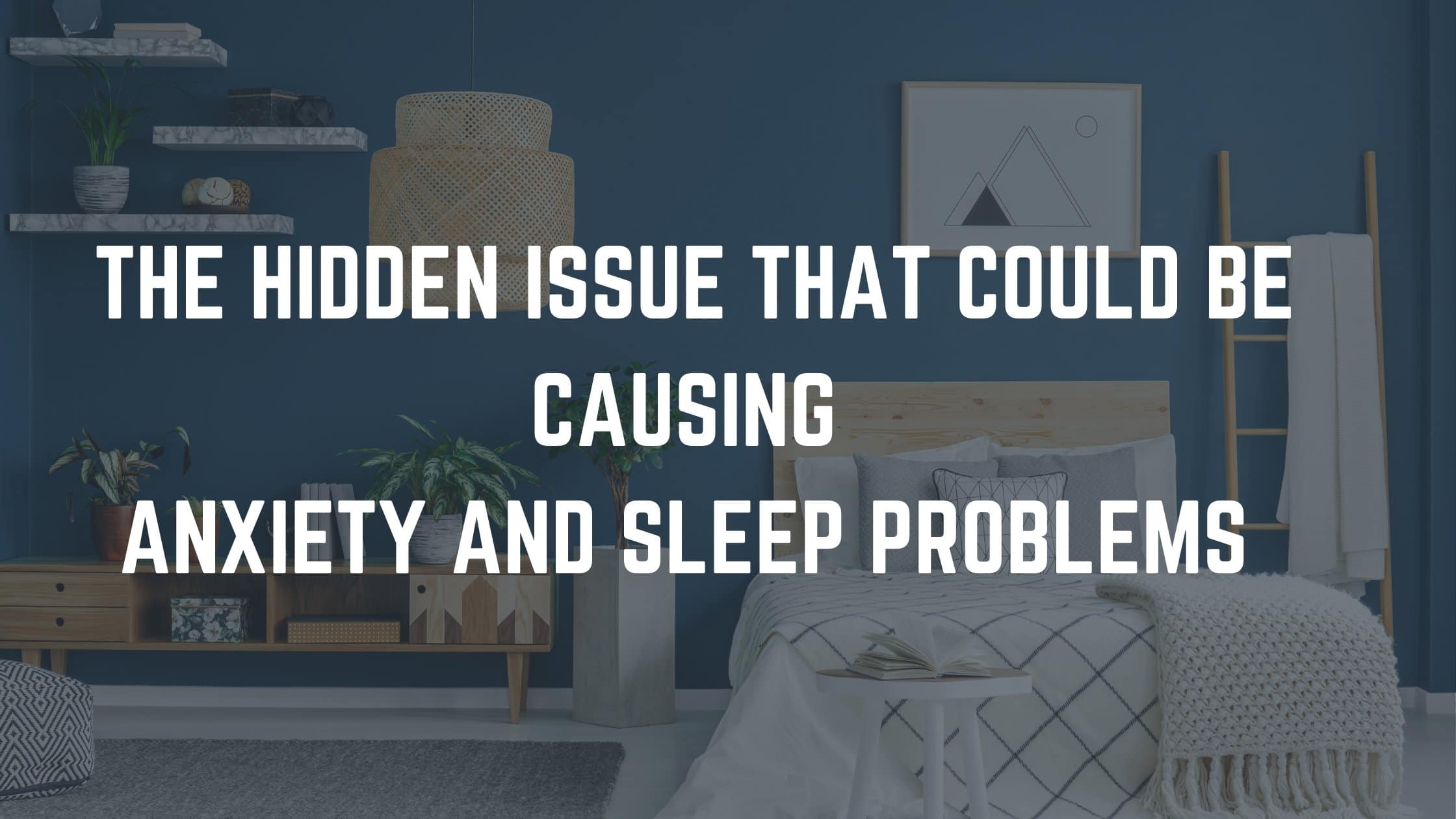The Hidden Issue That Could Be Causing Anxiety and Sleep Problems

The Hidden Issue That Could Be Causing Anxiety and Sleep Problems.
Problem
Issues related to anxiety, poor sleep quality, and attention deficit problems are in an uproar all over the globe, with the prevalence of each case growing ever so fast. While many people and groups are looking to fix the larger picture, there are also more minor, more individual things we can focus on to make progress, especially with the three being interlinked. Something closer to home and in your own environment, in fact. In this article, we will discuss hidden yet widespread mistakes many people are making that may be contributing to issues related to their health, at work and even in their own homes. However, before we delve into the topic, let’s understand the basics of the physiological mechanisms of breathing and gas exchange.
When we breathe, air enters the lungs and makes it away down to tiny air sacs called alveoli surrounded by blood. The oxygen trickles across the lung tissue and slowly fills the blood, where it is carried to the working muscle, organs and brain. Down at the cellular level, however, the opposite is happening. Carbon dioxide (CO2) is produced within the cells from the breakdown of molecules used for energy. The CO2 gas exchanges from cells into the blood carried to the lungs, and breathed out in the atmosphere.
So all day, you are continually expelling off excess CO2 into the environment around you. Now think of your company office, how many people are breathing out CO2 simultaneously, and is your office well ventilation. Thankfully, some more significant commercial buildings have air sensors and exaction fans that regulate air quality; however, many smaller facilities do not. Especially when it comes to homes. That means every night you are spending eight hours or more in one room, there’s a high chance of CO2 accumulation in that room. Roughly 25% of the air you breathe every day happens during sleeping. While CO2 plays a vital role inside the human body, excessive CO2 in poorly ventilated areas can become a health issue, primarily for anxiety sensitivity.
But how much is too much,
In ventilated areas or outdoors, air will contain between 200-400 ppm of CO2, depending on the air quality in your area. For example, in the middle of a big city, it may push to the higher end, whereas in the countryside or near the ocean you would expect lower. Simply due to industrialisation and transportation. That said, if your room is not ventilated, this can quickly rise. Once we start getting above 1000ppm, detrimental physiological and psychological effects are going to happen.
Roughly a year ago, I began to test out the air quality at home, in my bedroom, and in hotel rooms. During the summer, with windows closed to keep the heat out, CO2 levels rose 1500, sometimes more than 2000ppm overnight. Even higher when the air conditioning was on. My housemates who shared a room partner, the CO2 levels reached more than 2500ppm every night you sleep.
What do you think the consequences are if you sleep in these conditions day after day, month after month for years.
Here’s the main issue, anxious people and people with dysfunctional breathing are more sensitive to changes in CO2. Research continually shows that the inhalation of higher concentrations of CO2 leads to increased anxiety causing a vicious physiologically related anxiety disorder. Also, because CO2 is the primary driver to breathe, perhaps those sensitive to CO2 changes have a form of sleep-disordered breathing such as obstructive sleep apnoea, which seems to become more prevalent in our society, even more so in those with mental health issues.
Therefore, could your bedroom set up, the size of the room you spend most of your time in, or simply the fact that you spend lots of time indoors be a causal factor to anxious tendencies, poor sleep, and cognitive functioning. Well, I guess this is a hypothesis to suggest so. Surprising findings from my research when staying in hotel rooms, it was widespread for bedrooms to lack high-quality ventilation, so if you’re someone who often travels for work or leisure, this is something to be mindful of.
Solution
So, as a quick fix. Try these three steps to see if your sleep or wellbeing improves.
1. Open the windows, and if your room is small, wedge the door open. Be sure to let housemates or relatives know what you’re doing to avoid privacy issues.
2. Try using a fan to move air around the room, placing it near a ventilated area to get the fresh air moving.
3. Placing some greenery in your room to help improve the air quality because some indoor plants will be assisting in removing CO2.
If that improves your sleep quality and how you feel, next is to try and ensure you’re breathing through the nose only at night, as this will further reduce ventilation and lower CO2 output into the room. This can be done by placing some myotape over your mouth; this might be uncomfortable for some and need some adjustment time but monitor how you feel. If that improves, then the final stage would be to do some CO2 tolerance training.
CO2 tolerance training includes consciously breathing slower, taking control of your breath during higher stress situations, and implementing breath holds into your daily routine or exercise. This will decrease your anxiety considerably and is something I can help you program into your life with excellent results.
So what are you waiting for? Here are some actions you can take to manage your anxiety and improve your overall wellness. Something simple, easy to change, and who knows, could be the start to getting over your fear-driven life.
Any questions or comments drop them in the box below.




